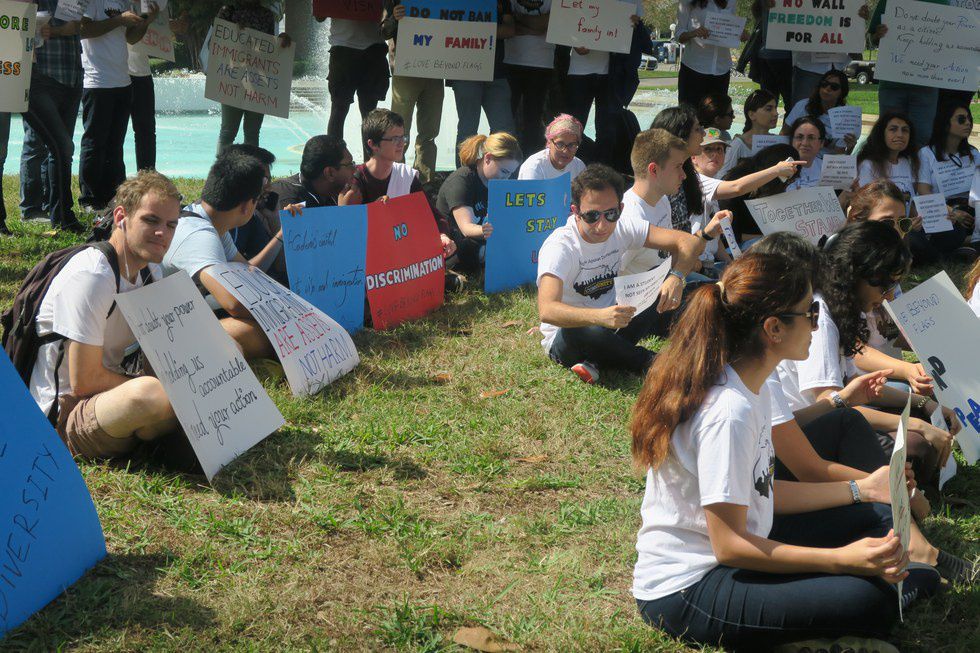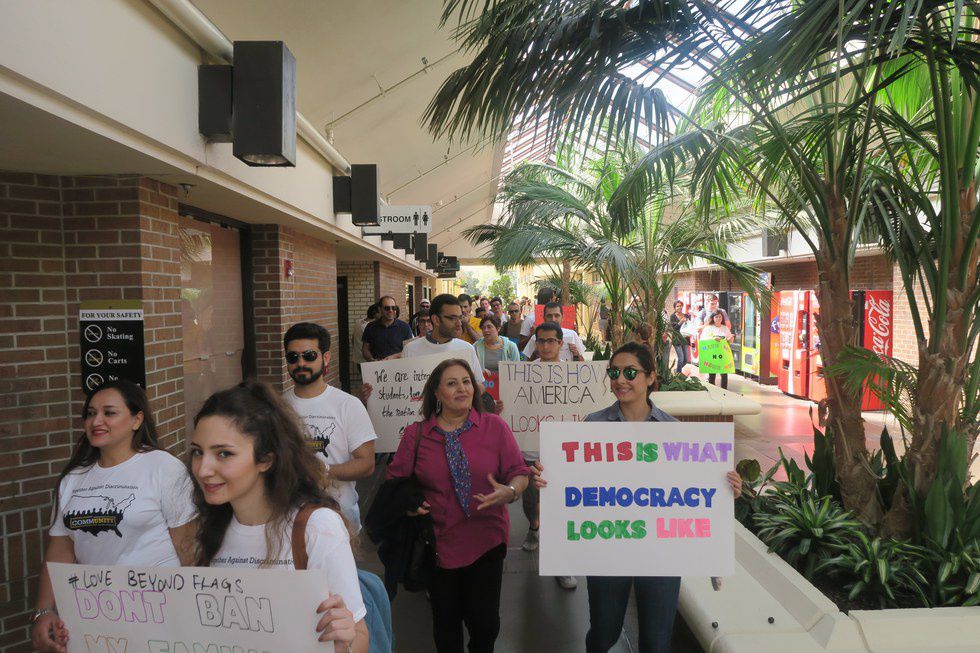In light of the upcoming and revised travel ban that the Trump administration is about to propose, here is the second interview from the Academics United Protest of University of Central Florida on February 9th:
After speaking with one Sepehr Benis, I wandered through the crowd, scanning for someone to interview. After a moment of aimless searching, I decided to just sit on the grass in front of a protester and start talking to her.
"Let's start with your name, if you don't mind."
"My name is Mahja Almaeenejad, and I'm getting my PhD in Statistical Computation."
"Wow, that's intense."
She laughed and nodded.
"So how do you feel this ban has affected UCF campus life?"
"Actually, there are a lot of us who wanted to meet our families, but I think we cannot because of this ban. A lot of parents couldn't come in. They were stuck in airports."
Mahja gestured to a paper on her shirt that said she hadn't seen her family in 1500 days. "As you can see, we have these papers that say we haven't in our families in 2, 3, or more years. We want to see them, and this is something that affects all of the students [from the seven countries impacted from the ban]."
"I will gradually affect everything. For example, I will graduate this semester and I will need to change my visa to OPT, because I am a foreign student right now. I work full time at two places and they want me to stay but I cannot change my visa status, so after I graduate, I may need to go back to my home country. But, I studied here and they want me to work here, but I can't. This is personal for me."
"How did you feel when President Trump voiced this travel ban?"
"I felt terrible. I cried. I came here for a reason, and I thought I could find peace in the United States, and freedom. But we have been labeled something that we are not. We are labeled as terrorists or supportive of terrorists. We're not. We're people, like American people. This is humiliating."
"If there is one thing you wanted to say to supporters of the travel ban, what would it be?"
"I respect people and their beliefs. I can't say they are wrong or they are right. I don't judge them. They can decide for their own. But I can say, 'Please stop listening to media, and what media is disseminating these days. This is not a truce. There are bad people and good people all over the world. We can say there are bad Christians and bad Muslims and bad Jews, but there are good ones from all. We need to look at the world and not judge people."
Despite the ruling from Judge James Robart that ruled the first travel ban as unconstitutional, President Trump vowed to get some form of the executive order through to avoid the "peril" that this nation will go through. People like Sepehr and Mahja, though they had a temporary alleviation, have to worry again about their status as students with more and more language (whether through tweets or executive orders) that is targeting people from the Middle East and creating a group mindset that stigmatizes anyone from that area of the world.
With many students from the seven countries that are in the crosshairs of Trump's discriminatory scope, friendships, families, and important (potentially life-changing) projects are at risk for being dismantled. If you have any desire to go against this, here are some resources to voice your concern:
No to Immigration Ban Campaign:
UCF Student Complaints:
http://www.sdes.ucf.edu/student-complaints-and-app...
National Iranian American Council:
Consulting your local Senators and Representatives carries weight as well:













































